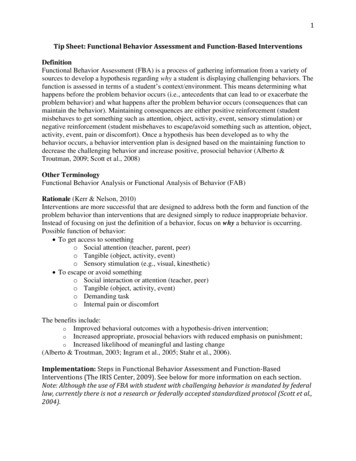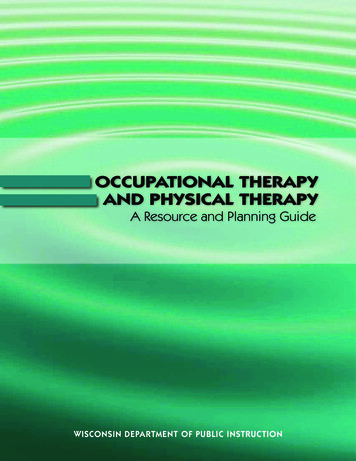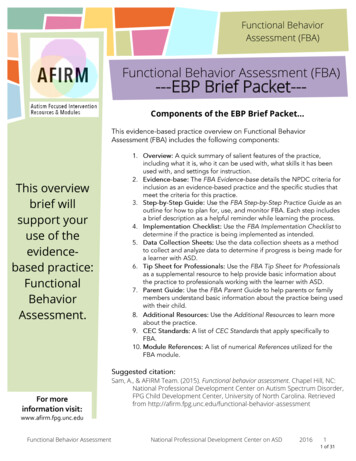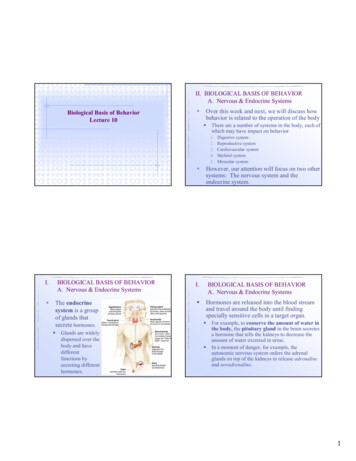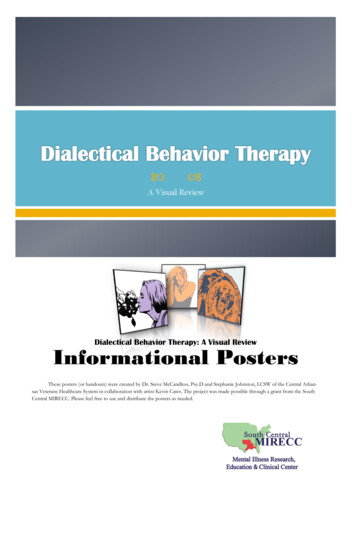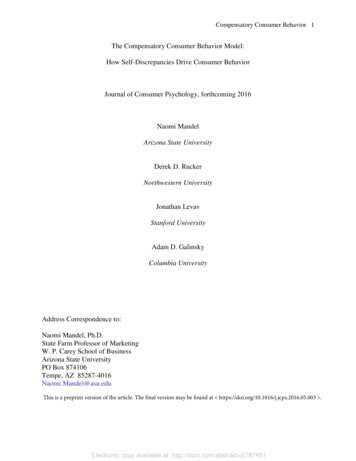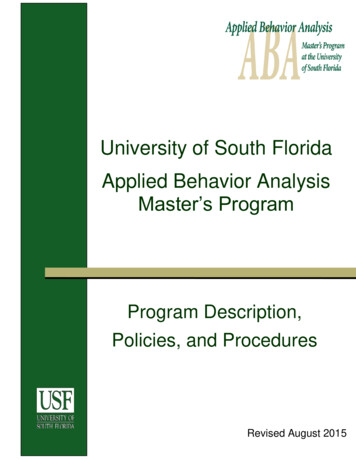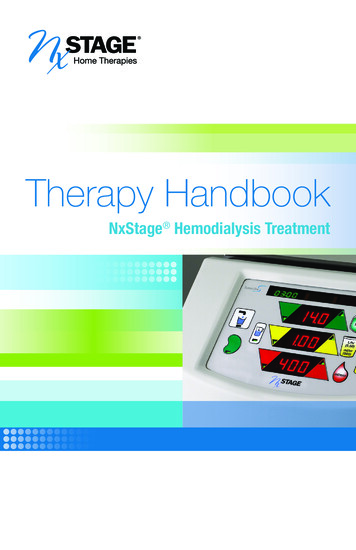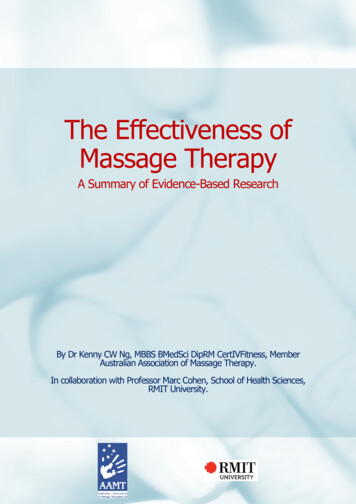
Transcription
Integrating Dialectical BehaviorTherapy with The Twelve StepsA program for treating substance use disordersBari K. Platter, MS, RN, PMHCNS-BCOsvaldo Cabral, LPC, MA, LAC
Training Objectives Review of EBP trends related to DBT and Twelve StepFacilitation (TSF) Discuss key concepts of DBT and TSF Compare stages and targets of DBT with Twelve Stepphilosophy Review 4 modules from Integrating DBT with the TwelveSteps workbook and practice a sampling of the skills
Why use DBT? Treatment for multi-disordered individuals with persistent and severeproblems Extensive evidence based research: Combines a scientific, objectiveapproach with compassion Can be found throughout 12-step literature and supports 12-stepphilosophy
Key Concepts of DBT Biosocial Theory (Emotion Dysregulation) Validation Dialectics
Dialectical Synthesis:The Middle Path A dialectical lifestylereflects balancedbehavioral patterns:– Balanced actions– Balanced emotions– Balanced cognition
Key Concepts ofTwelve Step Facilitation Surrender Self-Centeredness Honesty, Open-mindedness and Willingness
Alcoholics Anonymous &Narcotics Anonymous
DBT Stages of TreatmentPre-treatmentCommitment & AgreementStage 1Severe behavioral dyscontrolOutcomeBehavioral controlStage 2Quiet desperationOutcomeNon-anguished emotionalexperiencingStage 3Problems in livingOutcomeOrdinary happiness &unhappinessStage 4IncompletenessOutcomeCapacity for joy and freedom
Targets of DBT/12 Step Philosophy Emotion DysregulationAffective lability & problems with anger Internal unmanageability“Emotional volatility is often one of the most obvious waysin which we can identify personal unmanageability” (NAworkbook, p 4)
Interpersonal Dysregulation“The alcoholic is like aChaoticrelationships & fearsof abandonmenttornado, roaring his waythrough the lives of others.Hearts are broken. Sweetrelationships are dead.Affections have beenuprooted. Selfish andinconsiderate habits havekept the home in turmoil”(AA, p 82).
Self Dysregulation“We were constantlyIdentity disturbances,confused sense of selfsense of emptinesssearching for theanswer. That personplace or thing thatwould make everythingalright” (NA, p 5).
CognitiveDysregulation“We were prisoners ofDissociativeresponses and/orparanoid ideationour own mind andcondemned by our ownguilt” (NA, p 7).
BehavioralDysregulation“Any life run on self-willcan hardly be a success.Intentional self harmand impulsivebehaviorsOn that basis, we arealmost always in collisionwith somebody eventhough our motives aregood” (AA, p60).
Integrating Dialectical BehaviorTherapy and the Twelve Steps Innovative individual and group programming Facilitator Guide Session Guides– Four Skills Modules– Twenty Group Sessions (60-90 minutes in length) Participant Worksheets– Seventy-nine worksheets– CD for Worksheet duplication
Workbook Modules Mindfulness Distress Tolerance Interpersonal Effectiveness Emotion Regulation
Skills Group Structure Introductions Mindfulness warm up exercise Review assignment fromprevious week Teach/practice new skills Discuss new assignment Circle up
Mindless Living Exercise
MindfulnessStates of MindRational MindWiseMindEmotional Mind
“You can’t think your way into right living, butyou can live your way into right thinking” States of Mind– Big Book, pg. 26 Mind– Big Book, pg. 36 Mind– NA, pg. 87 Mind
Mindfulness Breathing
Distress Tolerance Wise Mind ACCEPTS Self Soothe the Five Senses PROMISE Radical Acceptance“Pain is inevitable, misery is optional”
Wise Mind ACCEPTS Activities Contributing Counting Your Blessings (Opposite) Emotions Pushing Away Thoughts Sensations
Contributing
Click to edit Master text styles
Self-Soothe with theFive Senses Explore patient’s experience with self soothing Brainstorm self soothing approaches used in the past Introduce new self soothing activities––––AromatherapyHot showers and bathsYoga/exerciseWalking meditation
PROMISE Prayer Relaxation One Step at a Time Meaning Imagery Seek Guidance Encouragement
Seek Guidance Exercise
Accepting Reality Radical Acceptance Turning the mind Willingness vs. Willfulness
Interpersonal Effectiveness Distortions, Absolutes & Stories Mutual Purpose, Mutual Respect SHARE and DEAR MAN
SHARE Situation- what is the situation? Honest expression of feelings Admit when you’re wrong Remember past performance & present behavior Emphasize spiritual principles
Emotion Regulation (smooth) SAILING SERENITY
SERENITY Slow thoughts Effective behavior Relax and breathe (stay grounded in your) Environment Notice others Imagine success Tolerate your traits You can do this!
Summary/Comments/ Q & A
Evaluation
Steps workbook and practice a sampling of the skills . . Combines a scientific, objective approach with compassion Can be found throughout 12-step literature and supports 12-step philosophy . Key Con
